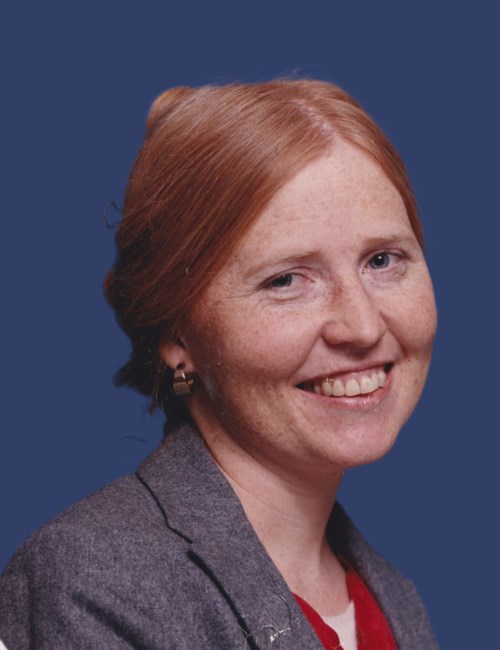
OBITUARY
Mary Lee Plumb-Mentjes
October 13, 1949 – March 4, 2024

Mary Lee Plumb-Mentjes died in Austin, Texas, on March 4, 2024, after suffering a stroke and the effects of Alzheimer’s disease. Her husband, Conrad Mentjes, her brother Tom, and friends were by her side.
Mary Lee’s life was filled with love, friendship, and joy in nature and the out-of-doors.
Conrad recalls with a smile how he first met Mary Lee. He was selling some of his remarkable craft creations at a street fair in Madison, Wisconsin. When Mary Lee came to his stall, he took one look at her beautiful red hair and tried to sell her an amber necklace. She didn’t buy the necklace, but they started talking, and she expressed interest in joining his hunt for dinosaur bones. That search in South Dakota was the beginning of their fifty-plus years of adventures.
Mary Lee grew up in suburban Washington DC. Her father’s Quaker ideals and her mother’s love of gardening were qualities she carried with her and shared with her many friends. She attended Sidwell Friends School, where she made lifelong friends. She received a BA in Psychology from Antioch College, an MA in Botany from the University of Texas in Austin, a PhD in Botany from the University of Wisconsin in Madison, and an MS in Animal and Range Science at New Mexico State University. She also studied one year at Emerson College in Great Britain, a college based on anthroposophy (the educational, therapeutic, and creative system established by Rudolf Steiner). Mary Lee completed Waldorf High School Teacher Training at High Mowing School, New Hampshire.
Mary Lee worked as a botanist, plant ecologist, and environmental regulator over her thirty-year career with the US Army Corps of Engineers. She lived in Alaska from 1987-2014, coming to the state from New Orleans on assignment with the Corps of Engineers. In her long career in Alaska, she had an important impact on wetland conservation, infrastructure development, and mitigation programs throughout the state, doing so humbly and thoughtfully. She knew the importance of getting decision-makers into the field to learn about issues by experiencing them firsthand, enriching what they had learned from emails and meetings. She took an immense pride in implementing a program where decisions were required to be balanced and fair. You can drive down almost any street in Anchorage and encounter the results of a project Mary Lee made possible. Her commitment was put into practice through mentoring other regulators and wetland managers, scientifically analyzing wetland functions, and serving as an expert in botany and soils. She influenced hundreds of decisions concerning wetlands in Anchorage that led to clean water, storm water retention, and maintenance of wildlife habitat. She received a 2012 Recognition by the Great Land Trust for Extraordinary Service and Contributions to Wetland Conservation in Alaska. She was a role model for other women.
Mary Lee loved to share with others her lifelong commitment to Steiner’s ideas, and her listeners soon came to realize that she had a parallel career in anthroposophy. This lifetime interest was sparked by a college coop job at an anthroposophist community, Camphill Village in New York, one of a group of communities where intellectually disabled people are integrated into a whole community experience.
Before coming to Alaska, Mary Lee worked with a group that eventually started a Waldorf school in New Orleans. In Alaska, Mary Lee introduced Waldorf education to the public and led training in Waldorf philosophy in Anchorage, thus building interest in, and knowledge of, Rudolf Steiner’s educational philosophy.
Her vision and unfailing dedication helped launch the Aurora Waldorf School in Anchorage, Alaska, the state’s first Waldorf School, and see it through its first 25 years. She set an example of collaboration, commitment, and self-development. She was the first Board President of the Aurora Waldorf School (subsequently renamed Anchorage Waldorf School) and served as a member of the Board that steered the school through its first 21 years. She was instrumental in developing the legal, fiduciary, managerial, and pedagogical elements of a developing independent school. She taught at and financially supported the school and guided its programs for students and teachers. She set up a school bookstore and created and nurtured community festivals to honor seasonal changes. Mary Lee regularly brought Waldorf educators to Alaska to provide enrichment programs and workshops featuring nationally known educators and psychologists. Waldorf training originally organized by Mary Lee in the arts and for teachers continues to be the model and inspiration for education throughout the state.
Mary Lee also built bridges between Alaskan and Russian Waldorf communities. Over several consecutive years, she sponsored a gala in support of the Aurora Waldorf School’s Russian language program. She travelled to Russia on seven occasions to visit Waldorf schools there and established two long-term partnerships, including the Kirov Waldorf School and a day center in Yekaterinburg for young people with special needs.
Survivors include her husband, Conrad Mentjes; brother, Tom Plumb; sister, Carol Meininger; nieces, Sarah Signor and Lara Baltes; nephew, Oscar Plumb; and numerous cousins, grandnieces, and grandnephews.
As we say goodbye to Mary Lee, the fields around Austin are blooming with the Texas bluebonnets and other native wildflowers she loved. We remember days we shared with her in the fields of Louisiana, Alaska, and the DC area – in Russia and throughout the world –looking at nature and laughing together. We are grateful for all she did to make our lives fuller and the world a better place.
Donations in memory of Mary Lee may be made to Anchorage Waldorf School at www.waldorfak.org or Anchorage Waldorf School, 3250 Baxter Rd, Anchorage, AK 99504.
Show your support
Add a Memory
Share Obituary
Get Reminders
Services
SHARE OBITUARYSHARE
- GET REMINDERS
v.1.16.0